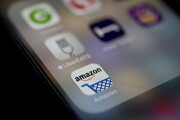JPMorgan Chase is offering early direct deposit for income disbursement, a product designed to provide flexibility for consumers struggling with higher prices and recurring bills.
Secure Banking account holders will be able to access salary, tax refunds, pensions and digital government payments two days early. The bank is offering the feature as high inflation and a potential recession have drawn more attention to payroll alternatives such as earned wage access and similar products from fintechs and other banks.
"Many of these customers have a gap between when their income comes in and when the bills are due," said Ryan MacDonald, head of product and managing director at JPMorgan Chase. "Just a few days can send them into a tailspin."
JPMorgan's Secure Banking has a $4.95 monthly fee, and is generally designed for consumers with a yearly income below $55,000. The account has about 1.4 million users. About two days before payroll transactions settle, JPMorgan can view the amount posted and can send a direct deposit to the client's employee "with a high degree of confidence," MacDonald said. "It will help pay bills on time and avoid late fees."

A number of financial institutions already offer
"Banks do have a leg up on offering early deposit access," said Steward Watterson, a strategic advisor at Aite-Novarica.
The difference between JPMorgan's early direct deposit product and earned wage access is the employee is accessing all of their salary two days early.
"As far as nonpayroll deposits, which is what is being discussed here with JPMorgan, only the consumer's bank can offer this," Watterson said.
The economic statistics suggest a large number of consumers are in peril. About one in six American households have fallen behind on utility bills, according to the
"A lot of consumers from this market group would be using payday lenders and check cashers," MacDonald said.
Thirty-two percent of adults have paid at least one bill late in the past half year, according to
The growth of earned wage access and other payroll flexibility options will not entirely address cost-of-living challenges, according to Matt Schulz, LendingTree's chief credit analyst.
"For most Americans who are struggling to pay their bills, the issue isn't about timing. It is about how much they get paid," Schulz said. "Early wage access isn't going to change that."
The challenges that consumers face in paying bills are drawing the attention of
JPMorgan's product does not charge a fee for the disbursement, but does charge $4.95 per month for the Secure Banking account which the bank hopes consumers will save based on reduced late fees.
"We have seen companies like Walmart and Amazon adopt earned wage [access] with their employee base, but most employers do not offer EWA," MacDonald said of the opportunity for early direct deposit.
While banks may not be inventing the wheel with two-day early direct deposits it can be a way for banks to keep up in a race against fintechs, according to Dylan Lerner, a senior analyst for digital banking at Javelin Strategy & Research.
"If everyone is doing early direct deposit then it will become the status quo," Lerner said. "The narrative will shift to those with direct deposit vs those with 'two-day delayed direct deposit' — if you're not early, you're late."
But the fintechs that offer earned wage access —firms like DailyPay, Payactiv and Earnin — are changing direct deposit in a much more meaningful way, making it harder for banks to compete, according to Lerner.
"Not only are they offering earned wages to users on demand, they're making significant strides into promoting direct deposit as a savings tool and building financial wellness experiences," Lerner said.






